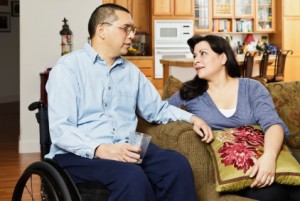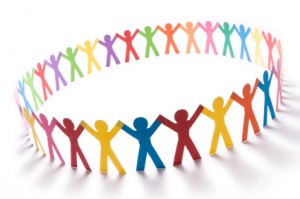 If you or someone you love has been afflicted with a traumatic brain injury (or, TBI), then you know: there are several poorly-informed myths surrounding this type of injury. Here are the top 5:
If you or someone you love has been afflicted with a traumatic brain injury (or, TBI), then you know: there are several poorly-informed myths surrounding this type of injury. Here are the top 5:
- If a person looks okay after he or she has been impaired, they must be okay. Wrong! It is very possible for a person who has just sustained a TBI to be walking around and talking to people, without realizing the extent of their injuries.
- Mild TBIs are not very debilitating. Even those people who have mild TBIs may experience severe or long-lasting consequences, that run the gamut from physical symptoms to psychological consequences.
- Recovery is a linear process. Not at all – recovery can be very messy, inconsistent, and those with TBIs may feel better or worse at different times throughout the recovery period. Recovery from a TBI does not follow a neat pattern. There is no timeframe or limit; each person’s recovery looks quite different. It’s true!
- TBI’s only happen when someone gets knocked unconscious. Nope! Some people with TBI’s are only dazed for a few minutes or two, but they never get knocked unconscious.
- Your IQ is affected by your traumatic brain injury. Wrong again – your IQ level is certainly not automatically affected by your TBI.
Join the TryMunity Community – We’re Here for You!
Do you have further questions about the many myths that surround traumatic brain injuries? At TryMunity, we provide a vast web of resources and support systems for those afflicted with a traumatic brain injury, or who know of someone who is. Please feel free to contact us with any questions you may have! Join the TryMunity community today, and take advantage of all that we offer. We’re always happy to speak with you and offer our assistance!


 One of the most unfortunate side effects of a
One of the most unfortunate side effects of a  When it comes to
When it comes to  When it comes to
When it comes to  Are you unsure of the difference between a traumatic brain injury (TBI), and an acquired brain injury (ABI)?
Are you unsure of the difference between a traumatic brain injury (TBI), and an acquired brain injury (ABI)? When it comes to dealing with a traumatic brain injury (or,
When it comes to dealing with a traumatic brain injury (or,  Support groups are an excellent way for t
Support groups are an excellent way for t If you have
If you have 
